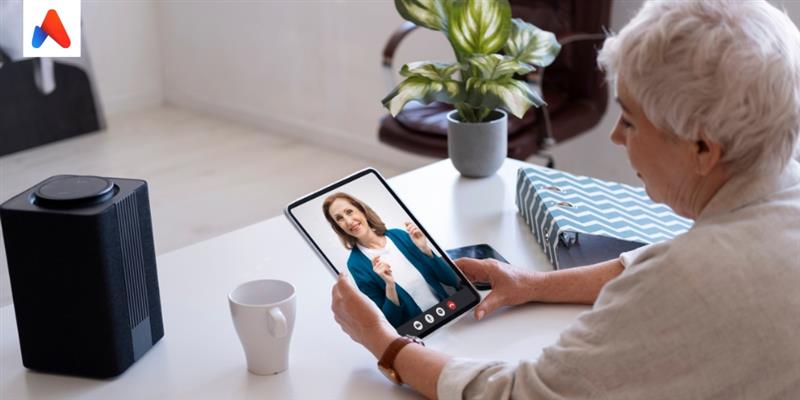For a Healthcare Compliance Officer, the responsibility is absolute: every touchpoint in the patient journey must be secure. In today’s outsourced world, that responsibility extends beyond the hospital floor or the payer’s internal systems. HIPAA Compliant Call Centers can help engage with patients better and assure compliance officers of the confidentiality of Protectected Health Information (PHI)
Introduction: Compliance Is the New Cornerstone of Patient Experience
When a patient calls to schedule an appointment, inquire about a claim, or confirm a prescription, the agent on the other end becomes both a representative of care and a steward of compliance.
Any third-party vendor handling Protected Health Information (PHI) on your behalf is not just a service provider—they are a Business Associate under the Health Insurance Portability and Accountability Act (HIPAA). That means they share your legal and ethical obligation to protect patient data.
So, what does it truly mean to be a HIPAA-compliant call Center in 2025?
It’s far more than signing a Business Associate Agreement (BAA). It’s about building a culture of security—rooted in Administrative, Physical, and Technical Safeguards, and reinforced by continuous evaluation, technology, and accountability.
1. The Foundation: The Business Associate Agreement (BAA)
Before any data is shared, the cornerstone of compliance must be in place: a Business Associate Agreement (BAA).
This legally binding document outlines how a call center will handle, store, and protect PHI. It ensures both the covered entity (e.g., a hospital or payer) and the business associate (e.g., Ameridial) share equal responsibility in preventing unauthorized use or disclosure.
A valid BAA must:
- Define permitted and required uses and disclosures of PHI.
- Require the vendor to implement safeguards that prevent unauthorized access.
- Mandate prompt reporting of any security incident or breach.
While the BAA is the legal foundation, true HIPAA compliance comes from how these safeguards are implemented daily.
2. Pillar One: Administrative Safeguards
Administrative safeguards form the operational backbone of a HIPAA-compliant call Center. They encompass policies, training, and personnel accountability measures that dictate how ePHI is handled.
Key administrative safeguards include:
- Security Management Process: Conducting ongoing risk analyses and maintaining a documented plan to mitigate threats to ePHI.
- Assigned Security Responsibility: Designating a dedicated HIPAA Security Officer responsible for policy enforcement.
- Workforce Security: Ensuring access to ePHI is role-based and revoked immediately upon employee exit.
- Information Access Management: Enforcing the “minimum necessary” standard through access controls.
- Security Awareness Training: Annual, role-based training for all agents to prevent human error and social engineering attacks.
- Security Incident Procedures: A documented response plan for identifying, containing, and reporting potential breaches.
- Contingency Planning: Maintaining secure data backups and recovery processes for disaster readiness.
- Ongoing Evaluation: Performing periodic assessments of all security and compliance protocols.
Ameridial’s approach: Every employee—from agents to executives—undergoes HIPAA certification and refresher training. Continuous audits and real-time monitoring ensure compliance isn’t a checkbox—it’s a company-wide mindset.
3. Pillar Two: Physical Safeguards
Physical safeguards protect the environments where PHI is stored, accessed, or transmitted. This includes everything from facility security to workstation setup.
Key physical safeguards include:
- Facility Access Controls: Restricted entry via access cards, security guards, and visitor logs.
- Workstation Use Policies: “Clean desk” and privacy screen policies prevent exposure of ePHI.
- Workstation Security: Locked, supervised terminals—even for hybrid or remote models.
- Device and Media Controls: Strict procedures for handling, reusing, and disposing of electronic media containing ePHI.
Ameridial’s facilities include onshore, offshore, and nearshore centers. These centers are equipped with biometric access, CCTV, and restricted floor zones to safeguard sensitive data.
4. Pillar Three: Technical Safeguards
The third pillar—Technical Safeguards—is where compliance meets IT infrastructure. It ensures that all electronic systems processing ePHI are secure from external and internal threats.
Core technical safeguards include:
- Access Control: Role-based permissions and unique user IDs for every agent.
- Automatic Logoff: Workstations auto-lock after a period of inactivity to prevent unauthorized viewing.
- Encryption: Data is encrypted in transit (e.g., VoIP calls, emails, chats) and at rest.
- Audit Controls: System logs record all access and activity for traceability and investigation.
- Integrity Controls: Mechanisms ensure that ePHI cannot be improperly modified or destroyed.
- Authentication: Multi-factor authentication (MFA) verifies user identity.
- Transmission Security: All data transmitted over networks is protected by end-to-end encryption.
Ameridial’s compliance framework integrates all of these into its infrastructure—offering HIPAA, PCI DSS, and SOC 2-certified systems that keep PHI protected at every stage of interaction.
5. The Role of HIPAA Compliance Across Healthcare Sub-Segments
While HIPAA standards are universal, the way compliance manifests varies across the healthcare ecosystem. Here’s how it applies to key sub-sectors Ameridial serves:
a. Providers (Hospitals, Clinics, Health Systems)
HIPAA compliance safeguards EHR data during scheduling, pre-authorizations, and patient follow-ups. Ameridial’s secure EHR integrations ensure seamless and compliant communication between providers and patients.
b. Payers and Health Plans
Compliance is critical for claims processing, member support, and Medicare enrollment. Ameridial’s payer-specific workflows meet CMS and HIPAA standards—protecting member data while improving service efficiency.
c. Telehealth and Virtual Care
Remote care expands access—but increases data exposure risk. Ameridial’s secure systems enable encrypted video, chat, and voice interactions for virtual patient support.
d. Pharmacies and PBMs
Ameridial ensures dual compliance (HIPAA + PCI DSS) in prescription management, refills, and insurance inquiries. Every agent interaction meets the highest data integrity standards.
e. Health & Wellness / DTC Healthcare Brands
Even consumer wellness programs handle PHI. Ameridial supports secure enrollment, health assessment surveys, and customer engagement under full HIPAA protocols—helping fast-growth brands scale responsibly.
6. The Cost of Non-Compliance
HIPAA violations can carry heavy financial and reputational penalties:
- Civil fines up to $1.9 million annually for repeated infractions.
- Criminal penalties, including imprisonment for willful neglect.
- Irreversible damage to brand trust after a publicized breach.
In 2024 alone, the U.S. Department of Health and Human Services (HHS) reported $47 million in HIPAA enforcement penalties—a stark reminder that compliance is both a legal and ethical necessity.
7. HIPAA Compliance in the Age of AI and Automation
In 2025, AI and automation have become standard in call center operations—but with new technologies come new compliance risks.
Ameridial’s AI-driven Quality Management System (AI-QMS) continuously monitors calls, flags potential PHI breaches, and enforces compliance in real-time. Automation enhances—not replaces—human oversight.
This ensures that patient privacy and efficiency evolve hand in hand.
8. Why Partner with Ameridial as Your HIPAA-Compliant Call Center
For over 35 years, Ameridial has supported healthcare organizations with fully HIPAA-compliant call center services designed for trust, scalability, and precision.
Ameridial’s compliance strengths:
- We do not store your data.
- Certified HIPAA, PCI DSS, and SOC 2 environments.
- Role-based agent access and ongoing compliance training.
- Secure EHR and CRM integrations.
- Real-time monitoring, risk auditing, and breach response protocols.
Whether supporting patients, members, or providers, Ameridial operates as a true extension of your compliance ecosystem—protecting both your data and your reputation.
Compliance as a Culture, Not a Checklist
A HIPAA-Compliant Call Center doesn’t just protect data—it protects trust. Compliance is not a project or a paper policy—it’s a living culture of security woven into every interaction, every system, and every employee.
When evaluating outsourcing partners, look beyond the contract. Request evidence of the implementation of administrative, physical, and technical safeguards. Partner with Ameridial—where every interaction reflects your commitment to patient protection and healthcare integrity.
Because in modern healthcare, every call is care—and every byte of data is sacred.








